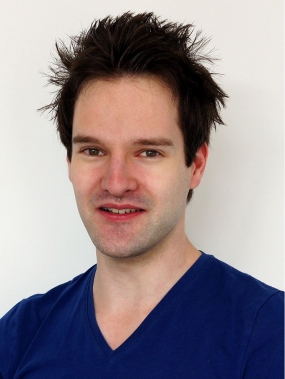

Research projects
Understanding Differentials:
The concept of differential played a major role in the historical development of calculus - as an infinitely small quantity. However, as this concept was rather vague, the approach to calculus via differentials was replaced in the 19th century by the approach via limits - developed by Weierstraß. Nevertheless, differentials are still used in many other disciplines. They are not only suitable as a practical tool for calculations, but can also help to develop an understanding of the fundamental concepts of derivative and integral. In my research, together with Thomas Skill, I am investigating how differentials are understood and used in economics. The results will then provide ways to introduce the concept of differentials in relevant service courses that bridges to how the concept is used in the students' major discipline.
Students' usage of video lectures:
Video lectures are nowadays a common element in many tertiary mathematics courses - especially since the Covid-19 pandemic. Together with Anja Panse, I am researching on how students learn mathematics using video lectures. We are investigating how students use the technical possibilities of videos to engage with the mathematics presented. In particular, we are investigating which activities they carry out in order to gain an understanding of the mathematical content.
Concept-Tests in abstract algebra courses:
Alexander Unger and I develop Concept-Test questions for abstract algebra courses that aim at supporting students to gain a deep understanding of the basic concepts in group and ring theory. Furthermore, we investigate empirically students' usage of quizzes with such questions as well as to what extent these quizzes actually help students to acquire an understanding of the corresponding concepts.
Changes in students' mathematical competencies:
Together with Stefan Büchele, I investigated to what extent and how students' mathematical competencies at the entry to university have changed within the last decade.
Learning of university mathematics in a Flipped Classroom:
In traditional mathematics lectures the lecturer normally puts definitions, theorems, and proofs on the board while the students are busy with copying the lecturer's notes from the board. For the development of an understanding of the content the students need to carefully process their lecture notes at home. However, students often do not rework through their notes in the way it would be necessary, and do not process the information presented in the lecture sufficiently. The idea of the Flipped Classroom model now is to change the in-class and the out-of-class activities: The students concern themselves with the content first at home before the lecture. The lecture can then be used for activities that can help to gain an understanding of the content.
Luise Fehlinger and I investigate to what extent students are more likely to be able perform activities that are essential for a successful learning in mathematics lectures in a flipped classroom course, in which the lecturer used the sessions to deeper process together with the students (under her lead) the definitions, theorems, and proofs covered in a script part administered before class.
Guided notes in mathematics lectures:
In traditional mathematics lectures the instructor writes the complete content down at the board. The students are mostly busy with copying the instructor's notes and cannot follow his explanations. On the contrary, in the case of the provision of a complete script, students tend to stay absent from the lecture. Hence, it seems reasonable to provide the students just with parts of the lecturer's notes with blanks at certain spaces (so called guided notes). Anja Panse and I investigate how students' note-taking differs in a lecture based on guided notes compared to traditional lectures.
Support of students in developing mathematical study skills at university:
I work together with Prof. Dr. Hans-Michael Dietz at the project "Support of study skills in Mathematics for economics students" at the Centre for Higher Mathematics Education in Germany (khdm). In this project the methodological support program of Prof. Dietz is evaluated and refined.
Ph.D. project:
My Ph.D. project (supervisor: Prof. Dr. Rolf Biehler at the University of Paderborn) is about students' of economics understanding of the derivative. I investigated the understanding required, the one conveyed in mathematics courses for economics students, and the one the students actually acquired after such a course. This led to proposals for teaching the concept of derivative to economics students in a way that is mathematical acceptable, but which also considers the way the derivative is practically used in economics. Further information can be found here.
Project about students understanding of the vector concept at the transition from school to university:
Together with Tobias Mai I do research on students' understanding of the vector concept at the transition from school to university. It has the aim to find out how the concept can be taught for university freshmen in a way that it is based on the students' previous knowledge of the concept from school on the one hand, but can also be embedded into formal vector space theory properly and consistently on the other hand.
Diploma Thesis:
In my diploma theses I did research on stress intensity coefficient of solutions of mixed elliptic boundary value problems. I showed that these coefficients depend smoothly from the data of the domain if the boundary is smooth, even if the solution itself is not smooth. I showed the result if the boundary is locally straight, but it can easily be generalized by using a local transformation of the domain. A pdf-version can be found here.



